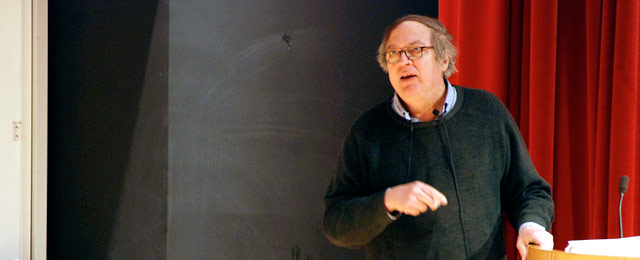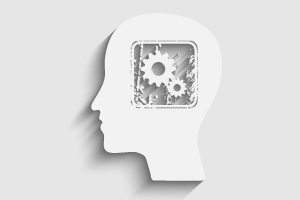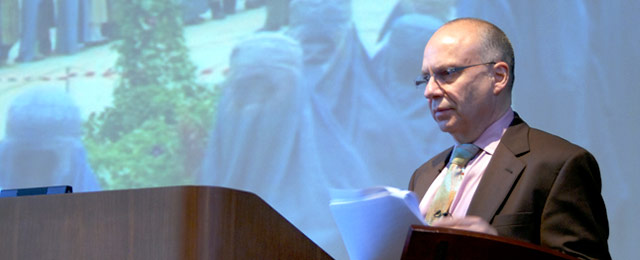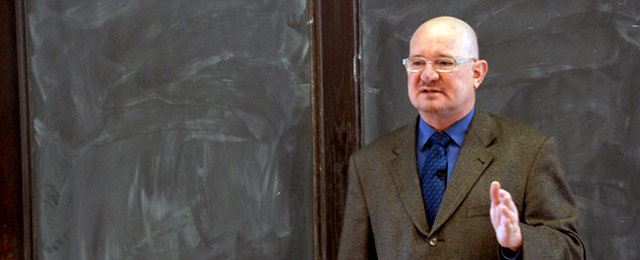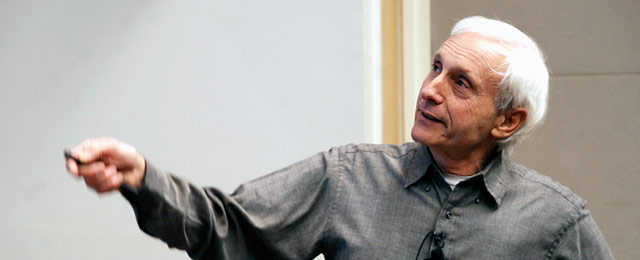Online courses directory (457)
This is a course focused on the literary genre of the essay, that wide-ranging, elastic, and currently very popular form that attracts not only nonfiction writers but also fiction writers, poets, scientists, physicians, and others to write in the form, and readers of every stripe to read it. Some say we are living in era in which the essay is enjoying a renaissance; certainly essays, both short and long, are at present easier to get published than are short stories or novels, and essays are featured regularly and prominently in the mainstream press (both magazines and newspapers) and on the New York Times bestseller books list. But the essay has a history, too, a long one, which goes back at least to the sixteenth-century French writer Montaigne, generally considered the progenitor of the form. It will be our task, and I hope our pleasure, to investigate the possibilities of the essay together this semester, both by reading and by writing.
This course offers a broad survey of modern European history, from the end of the Thirty Years' War to the aftermath of World War II. Along with the consideration of major events and figures such as the French Revolution and Napoleon, attention will be paid to the experience of ordinary people in times of upheaval and transition. The period will thus be viewed neither in terms of historical inevitability nor as a procession of great men, but rather through the lens of the complex interrelations between demographic change, political revolution, and cultural development. Textbook accounts will be accompanied by the study of exemplary works of art, literature, and cinema.
Gender Through Comics: A Super MOOC is a Massive Open Online Course (MOOC) coming Spring 2013 that examines how comic books can be used to explore questions of gender identity, stereotypes, and roles. This highly engaging learning experience is designed for college-age and lifelong learners. The course, led by Christina Blanch of Ball State University, uses a study of comic books incorporating highly interactive video lectures, online discussions between students, and real-time socially driven interviews. Interviews with the comic industry's biggest names such as Terry Moore, Brian K Vaughan, Mark Waid, as well as others address questions of gender representations and constructions involving both men and women. To purchase the required materials for this course, please visit the Comixology page for Gender and Comic Books. View a video teaser about Gender Through Comic Books
This course examines the causes and consequences of American foreign policy since 1898. Course readings cover both substantive and methods topics. Four substantive topics are covered:
- major theories of American foreign policy;
- major episodes in the history of American foreign policy and historical/interpretive controversies about them;
- the evaluation of major past American foreign policies--were their results good or bad? and
- current policy controversies, including means of evaluating proposed policies.
Three methods topics are covered:
- basic social scientific inference--what are theories? what are good theories? how should theories be framed and tested?
- historical investigative methodology, including archival research, and, most importantly,
- case study methodology.
Historical episodes covered in the course are used as raw material for case studies, asking "if these episodes were the subject of case studies, how should those studies be performed, and what could be learned from them?"
This course is a series of presentations on an advanced topic in the field of geology by the visiting William Otis Crosby lecturer. The Crosby lectureship is awarded to a distinguished international scientist each year to introduce new scientific perspectives to the MIT community. This year's Crosby lecturer is Prof. Kevin Burke. His lecture is about African history. The basic theme is the distinctiveness of the African continent in both the way that it originated 600 million years ago and in the way that it has developed ever since.
Modern industrial activities - which MIT engineers and scientists play a major role in - have significant environmental and social impacts. Trends towards further industrialization and globalization portend major challenges for society to manage the adverse impacts of our urban and industrial activities. How serious are current environmental and social problems? Why should we care about them? How are governments, corporations, activists, and ordinary citizens responding to these problems.
This course examines environmental and social impacts of industrial society and policy responses. We will explore current trends in industrialization, urbanization, and globalization, analyze the impacts these trends have on human health, environmental sustainability, and equity, and then examine a range of policy options available for responding to current problems. The course will present key trends in both domestic and international contexts.
We will examine four policy problems in particular during the course: (1) regulating industrial pollution; (2) regulating "sweatshops" and the broader impacts of globalization; (3) protecting ecosystems; and (4) protecting urban environments during development. We delve into specific cases of these challenges, including: chemical safety and toxins; computers, e-commerce, and the environment; biotech and society; sweatshops; and food production and consumption. Through these cases, we will explore underlying processes and drivers of environmental degradation. Finally, we will analyze opportunities and barriers to policy responses taken by governments, international institutions, corporations, non-governmental organizations, consumers, and impacted communities.
Objectives and Aims
- An understanding of the complexity of environmental and social impacts of industry;
- An ability to critically analyze policy responses;
- An understanding of the roles of different actors and institutions in environmental and social controversies;
- Means to evaluate institutional barriers to environmental and social policies;
- New ideas for better integrating industry, environment, and equity;
- New strategies for regulation in the global economy;
- An understanding about personal responsibilities and roles in environmental and social problems.



